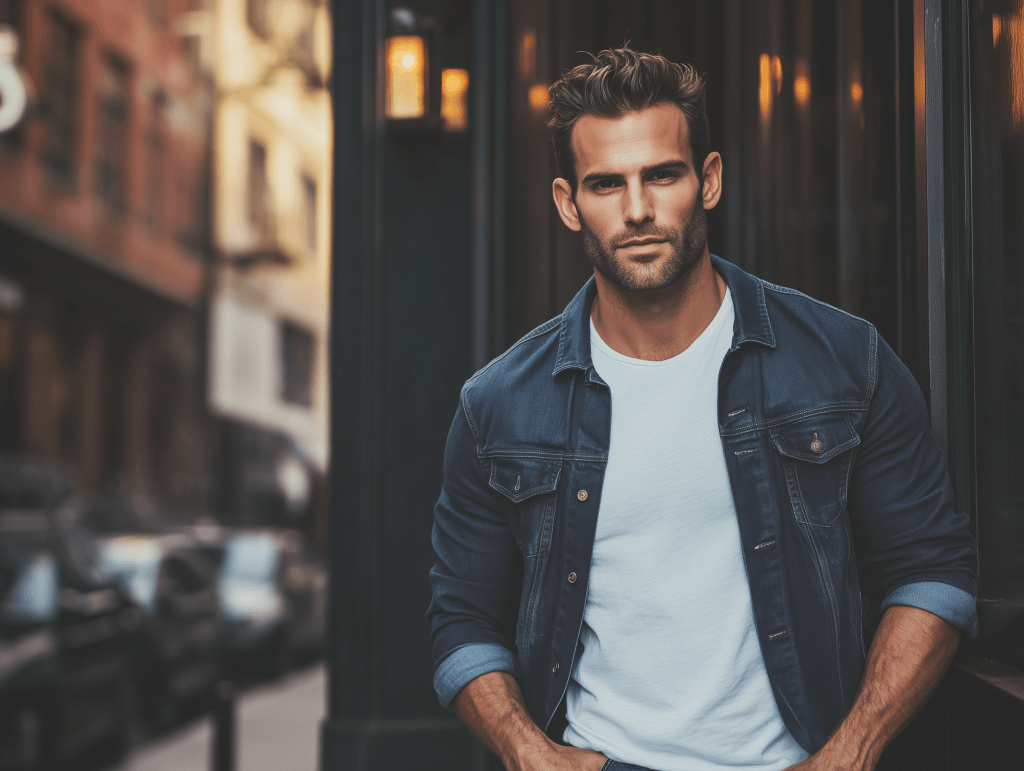Introduction: What Is an Exclusive Relationship?
When it comes to romantic partnerships, the term “exclusive relationship” is often used to describe the status of two people who are emotionally and romantically involved with one another, committing to each other without including anyone else. However, the exclusive relationship meaning can vary depending on the individuals involved. So, what does an exclusive relationship typically mean?
An exclusive relationship usually means that both partners have agreed to date only each other, cutting off romantic or intimate connections with anyone else. It’s a stage where both individuals make a conscious decision to commit to one another fully, with an understanding that their relationship will not involve third parties.
In the context of an exclusive relationship, the phrase “exclusive” signifies a commitment that restricts involvement with anyone outside the primary relationship. This goes beyond mere dating, as the emotional and romantic ties strengthen, leading to a deeper connection that often involves more serious commitment, such as future planning, shared goals, and even cohabitation.
In this article, we will explore the exclusive relationship meaning, how it differs from other relationship types, and why exclusivity can be beneficial for mental health and overall well-being. We’ll also dive into the importance of open and honest communication, how to maintain a healthy relationship, and why therapy online or in-person can assist couples in strengthening their bond.
What Does It Mean to Be in an Exclusive Relationship?
The commitment in an exclusive relationship typically means that both partners have reached an understanding of what they want from each other. However, for this exclusivity to work in the long term, there are several foundational aspects that couples must build and nurture together. Here are some additional layers to the key elements of an exclusive relationship:
1. Clear and Continuous Communication.
Open, honest communication is the cornerstone of any healthy relationship, and it becomes even more critical in an exclusive one. Being in an exclusive relationship doesn’t mean just talking about the big things, like future plans or shared goals. It also means checking in with each other regularly to ensure both partners feel valued, heard, and understood. Without this constant communication, misunderstandings can arise, and feelings of neglect can creep in. Having a space where both individuals feel safe to express their thoughts, worries, and desires allows the relationship to grow stronger over time. This also includes addressing concerns about each other’s emotional or physical well-being, ensuring that both partners are comfortable and respected in the relationship.
2. Emotional Investment.
In an exclusive relationship, both partners agree to be emotionally vulnerable with each other. This emotional connection is deeper than what typically exists in casual dating relationships. Both individuals begin to build a foundation of shared experiences, memories, and a strong sense of mutual support. This emotional investment means not just being there for the other person during happy times, but also offering comfort and support during more challenging moments. As emotional bonds deepen, partners become more attuned to each other’s needs and begin to truly understand and care about the other’s inner world. In exclusive relationships, this emotional bond fosters a sense of security, which is essential for the relationship to withstand any future challenges.
3. Trust and Loyalty.
Trust is not just a passive element but an active practice that both partners need to work on continuously. An exclusive relationship can only thrive if both individuals trust each other completely—emotionally, physically, and mentally. This trust isn’t just about knowing that your partner won’t date anyone else. It’s also about trusting that they have your best interests at heart, that they will be there for you when you need them most, and that they will support you in your personal growth and goals. Without trust, a relationship may fall apart as feelings of doubt or insecurity creep in, leading to issues like jealousy or dishonesty.
4. Setting Healthy Boundaries.
In any exclusive relationship, setting and respecting boundaries is key. Healthy boundaries aren’t about creating walls or distancing yourselves from one another; rather, they are about creating a mutual understanding of what is and isn’t acceptable. Boundaries can involve how you communicate with others outside the relationship, how much personal space each partner needs, or how much time is spent together versus apart. A strong exclusive relationship is one where both individuals feel safe enough to express their feelings and needs without fear of rejection or misunderstanding.
5. Exclusivity Beyond Physical Intimacy.
Exclusivity isn’t just about physical fidelity. It’s about emotional intimacy and the understanding that both partners are creating a private world together—one where emotional vulnerability, trust, and support are shared exclusively between the two. This emotional exclusivity is crucial because it reinforces the emotional bond that sets an exclusive relationship apart from casual dating or open relationships. In an exclusive relationship, there is a mutual agreement that emotional energy, affection, and love will be directed solely towards one another. This deep emotional commitment solidifies the relationship and makes it distinct from other types of romantic engagements.
Although people sometimes confuse an exclusive relationship with a committed one, they are not the same thing. While an exclusive relationship typically means that both partners are choosing not to date or be involved with anyone else, commitment goes a step further. Commitment implies a deeper, long-term intention to build a life together, including discussions around marriage, shared finances, children, and long-term goals. The commitment aspect is a progression from the initial decision to be exclusive and often comes after both partners feel secure in the exclusivity of their bond.
Understanding the difference between these two concepts is important, as it can help manage expectations and ensure that both partners are aligned in their vision for the future. An exclusive relationship can evolve into a committed one, but it requires open, honest communication and mutual understanding of what each person wants from the relationship. When both individuals are on the same page and respect the exclusivity of their connection, the foundation is set for a thriving, healthy relationship built on trust, love, and mutual growth.
Signs You’re Ready for an Exclusive Relationship
How do you know when you’re ready for an exclusive relationship? While every person and relationship is different, there are some clear signs that might indicate you’re prepared for this next step.
1. You Trust Each Other: Trust is essential in an exclusive relationship. If you and your partner have built trust over time and feel secure in your connection, it might be the right time to take things to the next level. Trust forms the bedrock of commitment and loyalty.
2. You Share Your Feelings Openly: Being open and honest about your emotions is a key sign that you’re ready for an exclusive relationship. If you can freely express your feelings, fears, and desires without hesitation, it’s a sign that you’re emotionally mature enough to handle the intimacy and vulnerability of an exclusive bond.
3. You’re Not Interested in Anyone Else: One of the clearest indicators that you’re ready for an exclusive relationship is if you find yourself emotionally and romantically invested in one person, without a desire to date or connect with anyone else. This demonstrates your willingness to dedicate yourself fully to the relationship.
4. You’re Ready to Make Future Plans: In an exclusive relationship, both partners are typically on the same page about long-term goals and future plans. Whether it’s moving in together, traveling, or even discussing marriage, an exclusive relationship means that both individuals envision a shared future.
5. You Prioritize Each Other: When you’re ready to enter an exclusive relationship, you’ll prioritize your partner’s needs and well-being. You’ll make an effort to spend quality time together, support each other, and nurture the bond you share.
Being ready for an exclusive relationship doesn’t just mean committing to one person; it’s about emotional maturity, clear communication, and a mutual understanding of what the relationship will entail.
The Role of Mental Health in Exclusive Relationships
Mental health plays a significant role in any exclusive relationship. When partners are in a relationship, their emotional well-being can either strengthen or strain the connection. Healthy mental health practices are essential to maintaining a fulfilling and stable partnership.
1. Managing Stress: Stress from external factors like work, family, or social obligations can impact an exclusive relationship. It’s important for both partners to understand how stress affects each other and to find ways to manage it together. Online therapy or therapy online can be a helpful tool for couples to navigate stress and learn coping mechanisms.
2. Supporting Each Other’s Mental Health: In a strong exclusive relationship, both partners should actively support each other’s mental health. This involves checking in on one another’s emotional well-being, offering a listening ear, and seeking help when needed. A partner who is emotionally available and supportive contributes positively to mental health within the relationship.
3. Addressing Issues Early: It’s essential to address mental health challenges early in an exclusive relationship. Ignoring emotional difficulties can lead to unresolved tension and hurt feelings. When you and your partner are dealing with mental health issues, it’s important to approach them together, as a team, to work through the challenges.
4. Seeking Professional Help: Sometimes, professional guidance is needed. Seeking therapy for individual or couple-related concerns can improve mental well-being and strengthen the exclusive relationship. Both partners should feel comfortable seeking therapy online or in-person to maintain a healthy dynamic.
Conclusion
In conclusion, an exclusive relationship typically means a committed, emotionally focused bond between two individuals, free from romantic connections with anyone else. It’s a stage of mutual trust, commitment, and emotional growth, where both partners prioritize each other and plan for a shared future.
The exclusive relationship meaning goes beyond physical exclusivity, focusing on emotional, mental, and practical commitment. Healthy communication, mental health awareness, and ongoing emotional support are key to maintaining a successful exclusive relationship.
Whether you’re looking to start an exclusive relationship or nurture the one you’re currently in, always remember the importance of open and honest communication, respect for boundaries, and prioritizing your mental health.
If you’re struggling with your relationship, consider online therapy as a valuable resource to help you work through challenges and strengthen your connection with your partner.













